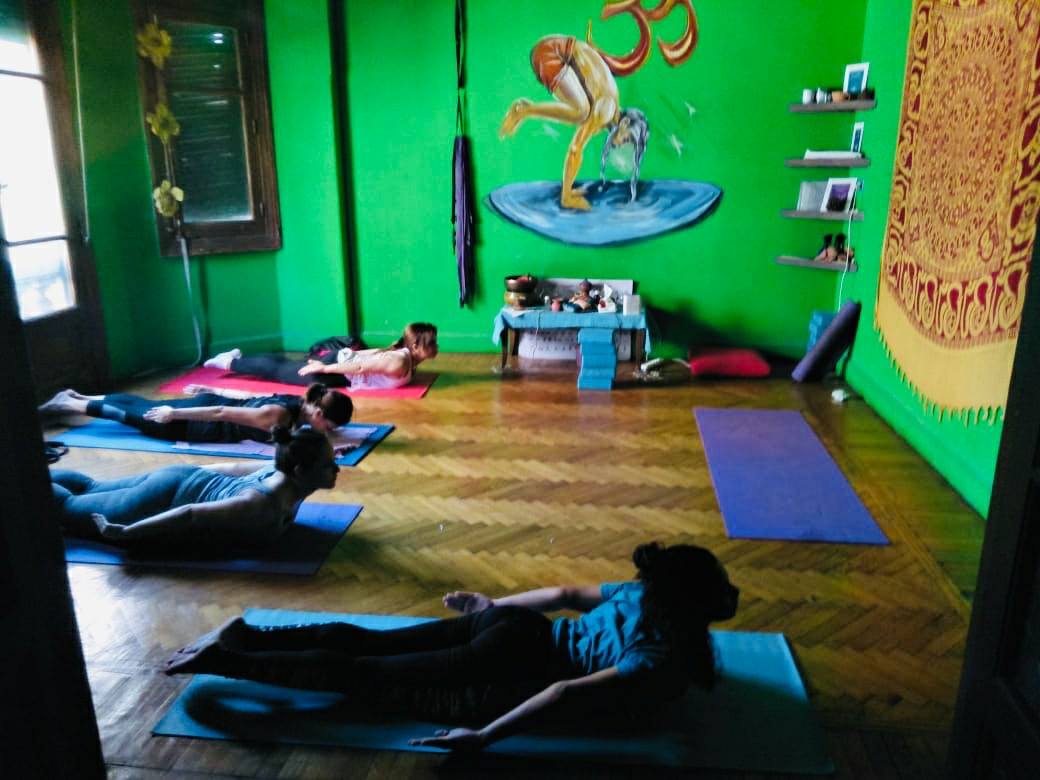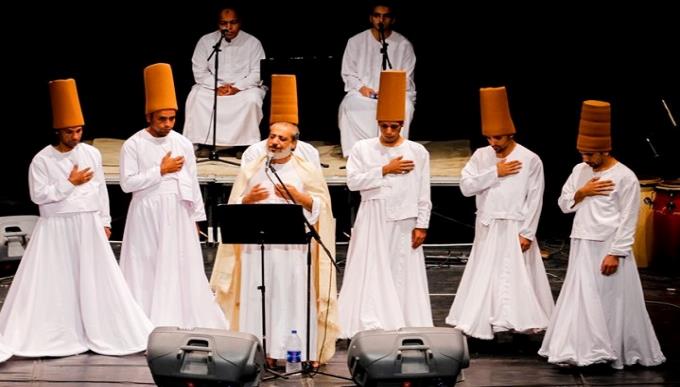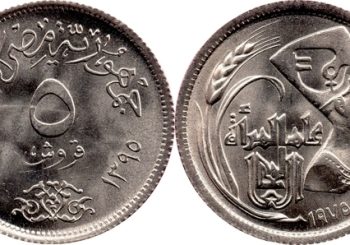Ramadan is a spiritual time for Muslims and the pace of life significantly slows down in Islamic countries like Egypt. As the first week of Ramadan came to an end, Egyptian Streets made a brief visit to Mudra Studio, cozily tucked away above the bustling streets of Zamalek, to find out how classes are adapted to the holy month and why certain practices such as Meditation and Sufi chanting are currently particularly appealing.
“Of course I change the style of my classes during Ramadan. Especially before Iftar, the flow will generally be a bit slower. I concentrate on specific postures, which help those fasting to detox their bodies,” says Yoga instructor Rasha, who teaches a special Detox class.

While Yoga remains a popular choice for the core clientele of Yoga studios across the city, especially considering that its underlying ideas of mindfulness and gratitude go hand-in-hand with those of the fasting month, some other meditative practices and Sufi chanting classes are now listed on the monthly schedule, attracting more people to slow down and reflect.
The focus this month is consciously geared towards detox and meditation – especially spiritual meditation – with a set of extra classes that are usually only offered once a month, added during Ramadan. These include meditation classes of various types as well as a Sufi chanting class, which is taught in collaboration with a special instructor.

Music and recitations have always been a central feature of Muslim festivities, especially during Ramadan. While these public recitations are often Qur’anic, Sufi chanting is another vocal tradition that one might hear after iftar.
What is the main purpose of these meditative chants and why might they be particularly effective and popular during Ramadan?
Within Islam, Sufism is the esoteric path, where the aim is to reach mystical union with God and purify oneself. Practitioners of Sufism are called Sufis and are known to follow various spiritual practices, many of which were influenced by the Indian tradition of Yoga. Out of the many meditation techniques that exist, Sufi meditation is considered one of the most spiritual types.
Sufi chanting, or Dhikr – the Remembrance of God – is a form of spiritual cleansing and charity meant to purify both heart and soul. Based on divine phrases and words, Sufi chants are repeated to create rhythms and sound vibrations that are able to elevate and heal the soul. While the chanting induces a focus on the mind, the energy of sound can in turn vibrate through the body. As such, when the sound and thought vibrations merge, a peaceful state of oneness is ideally reached.

In the uplifting Sufi chanting classes Cherie, owner of Mudra Studio, co-convenes with musician Abdeen, the point is to rebalance the body’s energy flow by chanting a number of the beautiful names of Allah. “We sit in one posture, breathing and chanting and listening to Abdeen, sometimes accompanied by guitar music,” Cherie explains.
The Dhikr sessions encourage participants to open up their so-called Lataif, or ‘energy points,’ so as to actively heal body, mind and spirit. The Sufi chanting is thereby supposed to have a transformative effect on the ways we think and feel.
Beyond the Sufi chanting classes, two other forms of meditation are featured on the Ramadan schedule. These are centered around gratitude and forgiveness – both practices of utmost importance during the religious month, which encourages deep reflection on behavior and awareness of the struggles of those less fortunate.
While Buddhist monks begin each day with a chant of gratitude for the blessings of their life, gratitude is just as common a theme in the Qur’an; the deprivation intended to be felt during the fasting month, serving as a reminder to be grateful and not to take possessions for granted.
As for the importance of forgiveness, another meditative practice encouraged during Ramadan, the aim is to both look outwards and forgive those, who may have harmed us, while not forgetting that self-forgiveness can be equally challenging.
Critical to psychological and emotional well-being, the ability to forgive redirects us away from the uncomfortable and mostly unproductive feelings of guilt and regret. Instead, the class essentially focuses on letting go of negative emotions such as anger, creating states of mind that relieve stress and allow for change.
Within all these forms of meditation, even simply the willingness to be mindful of these various states is considered an important and rewarding step.





Comments (2)
[…] formed six years ago and their reputation has been increasing ever since then especially with the Sufi chanting becoming more and more popular everyday between the different social and age groups of […]
[…] formed six years ago and their reputation has been increasing ever since then especially with the Sufi chanting becoming more and more popular everyday between the different social and age groups of […]